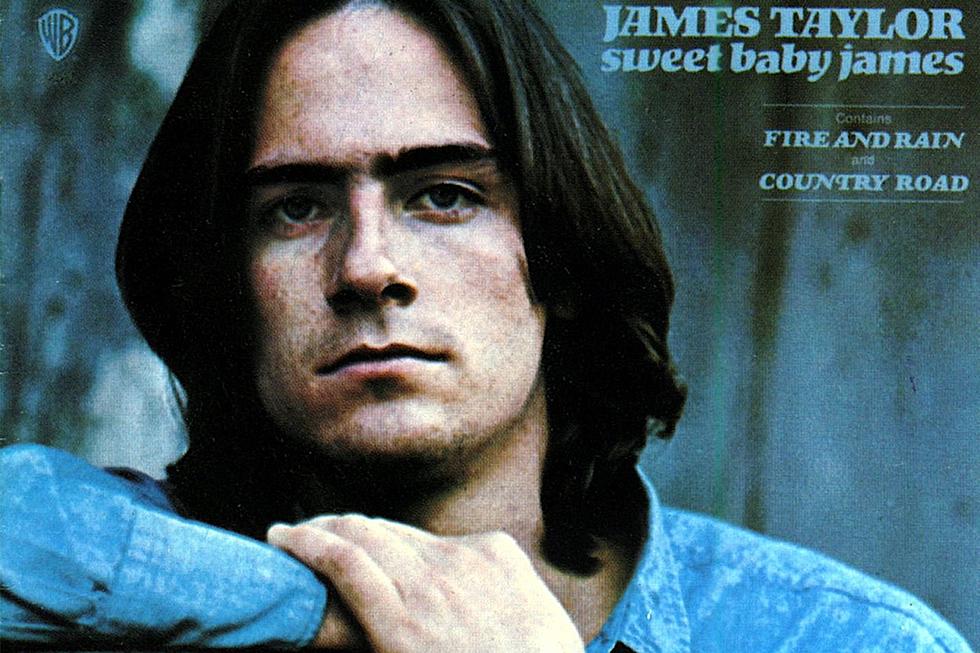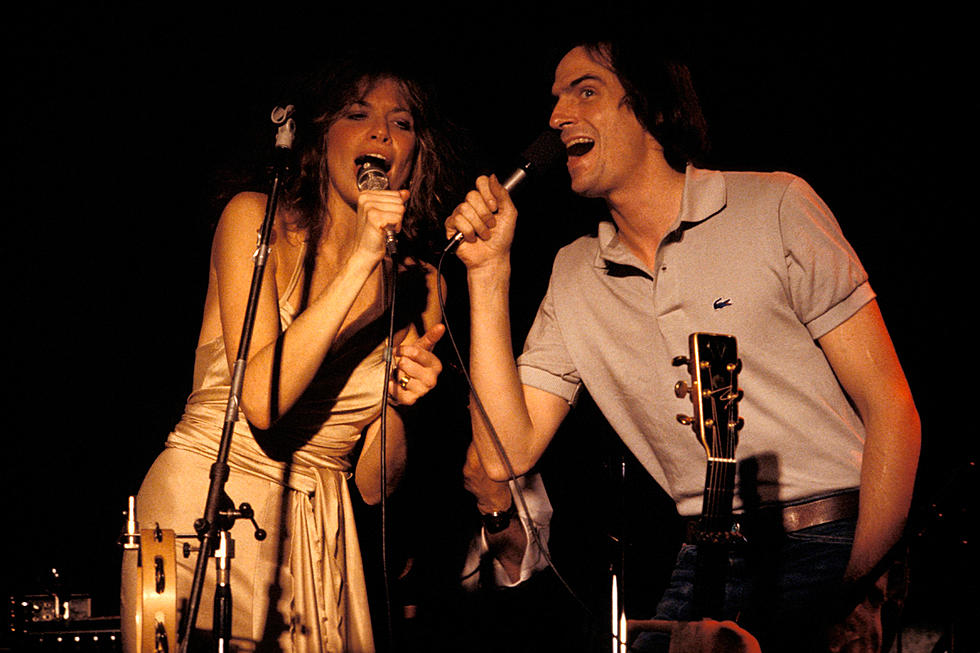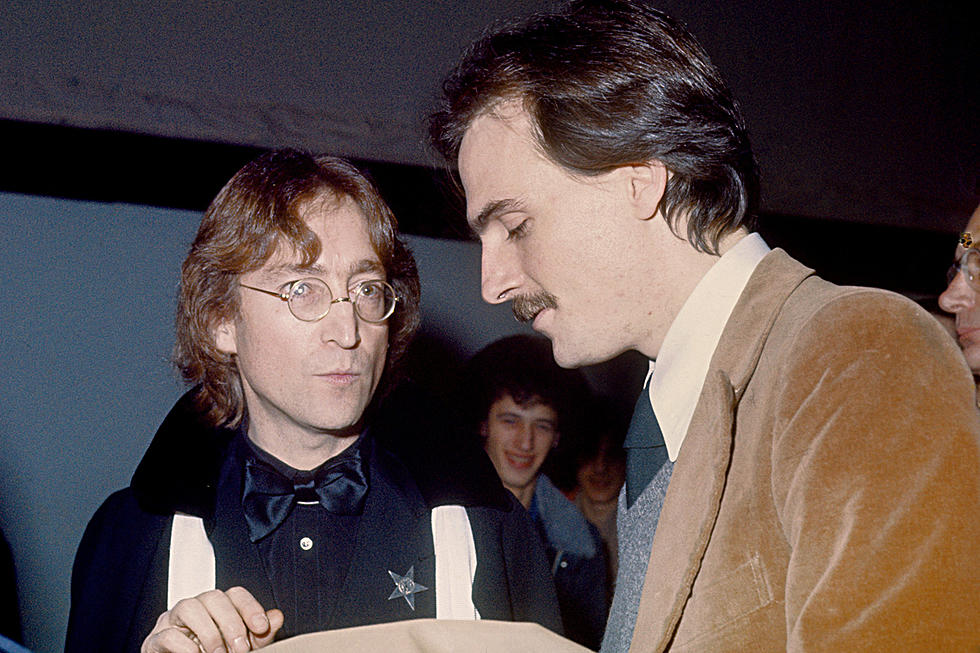
How James Taylor’s ‘Sweet Baby James’ Sparked a New Genre
The failure of James Taylor's Beatles-backed 1968 self-titled debut hit him hard, and in more ways than one.
He left Apple Records for Warner Bros., in a move that coincided with a more stripped-down approach to music making. Gone were the period-specific orchestrations and odd linking passages. Instead, fans were greeted on Feb. 1, 1970 with a more intimate sound that would define the looming singer-songwriter era.
Don't get the idea, however, that Taylor had any grand plans. "It was quite momentary," he acknowledged in a 1994 interview with the Orlando Sentinel. "You didn't think about it five years down the line. To me, life itself was like that then. It was very free. We just went in and did it. At the time, I didn't know how to think about things like the marketplace, or what people were listening to."
Thankfully, listeners responded, because Taylor was essentially homeless at this point. When not in the studio, he could be found either over at producer Peter Asher's house or on a couch belonging to guitarist Danny Kortchmar.
He just had to finish. Taylor was promised a $20,000 bonus – and, needing one more track, stitched together all of the remaining song fragments into the album-closing "Suite for 20 G." That influx of cash held him over until Sweet Baby James began to pick up momentum.
It took awhile. Taylor's title-track first single didn't even chart. But this time, he stayed out on the road. The drug-addled Taylor hadn't been able to mount a supporting tour for his debut, and he now accepted that as a contributing factor to its commercial slide.
He lamented his mistakes – along with the suicide of childhood friend Suzanne Schnerr and the disintegration of his early band Flying Machines – in the gentle second single from Sweet Baby James, "Fire and Rain." For all of its placidity, however, repeated listens uncovered new depths below the surface: There were also embedded references made to time spent in Austin Riggs, a mental hospital in Massachusetts.
Listen to James Taylor Perform 'Fire and Rain'
Maybe it shouldn't have worked, but it did. Taylor just had to get out of his own way. "He was a brilliant, somewhat eccentric, close-to-genius musician," Asher told Rolling Stone in 2013, "and he was clearly one of those people who sometimes thought a bit too much for his own good."
As both the song – and then the album – rose to No. 3 on the Billboard charts, Taylor realized he'd hit upon something. "Though 'Fire and Rain' is very personal, for other people it resonates as a sort of commonly held experience – and that's what happens with me," he told NBC in 2007. "I write things for personal reasons, and then in some cases it can be a shared experience."
The band's ability to match Taylor's discreet approach grew out of rehearsals in Asher's living room, as Taylor, Kortchmar, drummer Russ Kunkel and pre-fame pianist Carole King worked out the songs. At one point, Asher asked Kunkel to use brushes, rather than sticks, so they wouldn't disturb the neighbors. It gave everything a sense of hushed confidentiality.
"Fire and Rain" actually started out in a much more straight-forward way, almost a year before. But this new musical configuration transformed everything. "We were playing it like a rock band," Kortchmar told Rolling Stone. "Peter figured out after that version that it had to be scaled back. That bigger version diminished the power of the song. When Peter took everything out, the song came to life."
So did Sweet Baby James, which came together over just a few weeks in December 1969 at Sunset Sound in Los Angeles. Taylor had arrived unusually prepared, having had plenty of time to compose while recovering from a motorcycle accident in which he broke both his hands and feet.
"It sort of forced me to wait and then go into the studio when I was more than enough prepared," Taylor told Uncut in 2015. "So, the album was recorded really quickly. We cut two or three things a day, and they would be largely finished after the basic tracks."
Listen to James Taylor Perform 'Country Road'
The songs touched on folk, gospel, pop and blues – though the last was principally offered with a wink, on "Steamroller Blues" – while Taylor boldly threaded in elements of his real life. The title song, for instance, was written as Taylor drove to meet his oldest brother Alex's first child.
"I was very excited that they had a kid, and very moved that they named it after me, and I was behind the wheel for 20 hours or so straight – maybe 15 hours, driving straight down," Taylor told Paul Zollo in 2010. "And that song just assembled itself as I was driving down there. My memory was good enough in those days that I remembered it all. As soon as I got home, I wrote it down."
"Country Road," the album's final Top 40 hit, was inspired in part by experiences Taylor had when he committed himself to the hospital for depression. Bassist Randy Meisner, later a member of the Eagles, guides the song toward its hopeful, nature-set conclusion. The rest of the album seeks the same balance, whether Taylor is longing for similarly idyllic places in "Blossom" and "Anywhere Like Heaven," or touching on his treatment again during "Sunny Skies."
That deft combination of confessional darkness and soothing escapism seemed to arrive at just the right moment for a nation in turmoil. "It's one of those things where somebody writes very personal songs about their own experience, and what they're feeling about that experience turns out to be something shared by many people," Asher told Rolling Stone. "Everyone would listen to those lyrics and hear their own lives in there."
Taylor was positioned for his commercial peak, as his next album produced the chart-topping, gold-selling "You've Got a Friend." By early 1971, you could find Taylor on the cover of Time magazine, which heralded him as the embodiment of a new singer-songwriter movement. He tended to shy away from such accolades, but he never stopped writing in this deeply sincere way.
"I think that 'singer-songwriter' is probably a pretty good description of my type of music," Taylor told the Richmond Times-Dispatch in 2014. "I've been credited with initiating it in the '70s, but I just felt as though I was on a continuum with other people, that other people had been in these shoes before me. I think the thing about me is that my music was unusually sort of personally autobiographical. It was really a very subjective kind of work that I was originally known for. I suppose 'intimately autobiographical singer-songwriter' — that probably suits me pretty well."
Top 40 Singer-songwriter Albums
More From Ultimate Classic Rock









